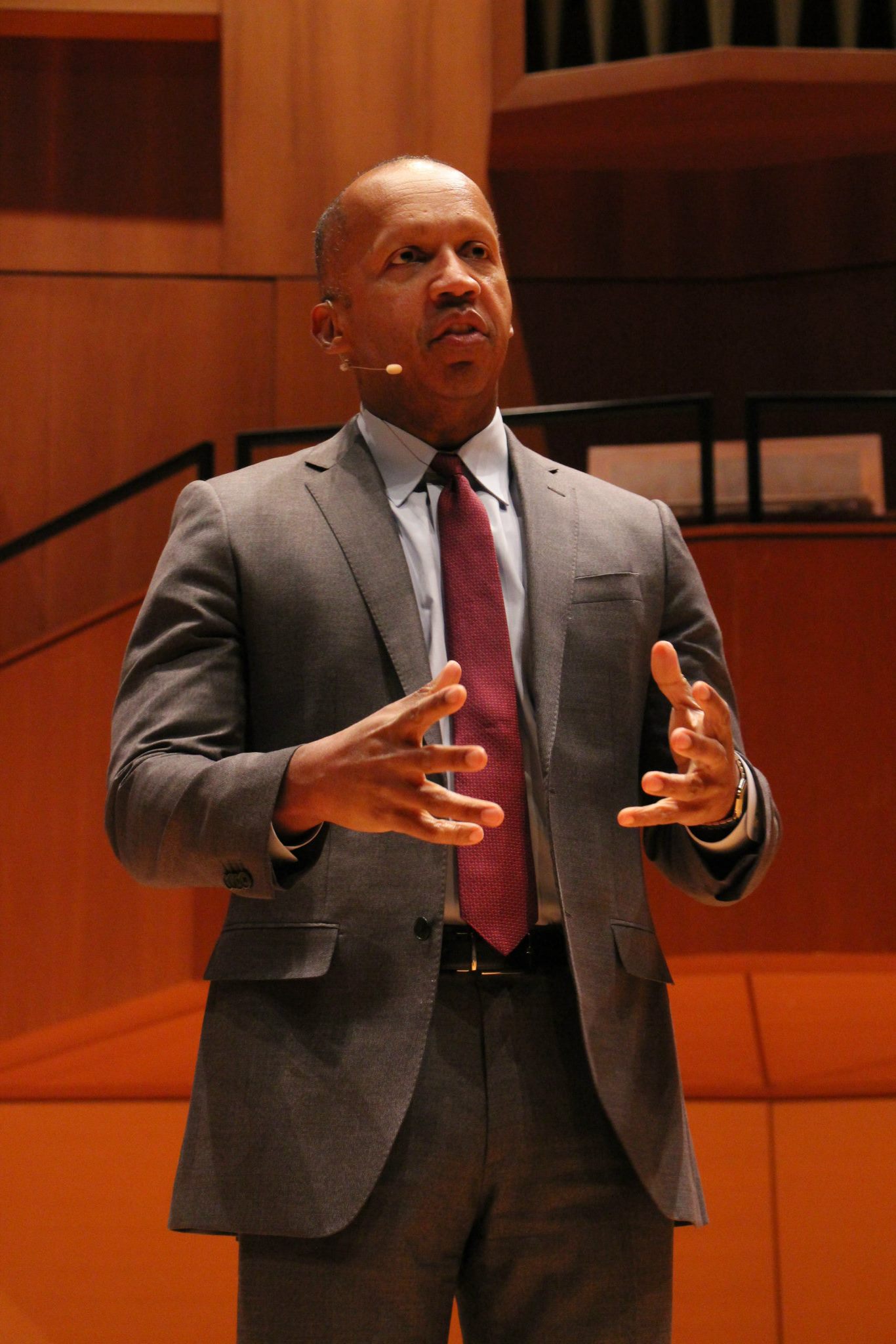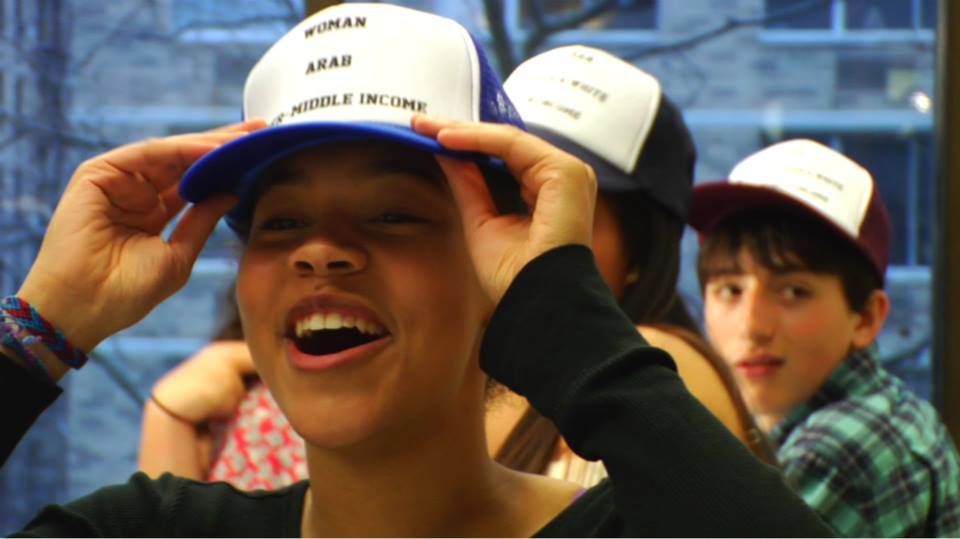Bryan Stevenson needs no notes.
Not for his TED Talk, not for his Daily Show appearance, and not for his 40 minutes on stage in Cleveland.
Some 800 people made reservations to hear him—so many that his host, Facing History and Ourselves, moved the event to a larger auditorium at Cleveland State University. As Stevenson entered, the assembly was on its feet, prompting Felton Thomas, executive director of the Cleveland Public Library, to raise his eyebrows: “A standing ovation before he even speaks?”
The bald, soft-spoken lawyer—who wore the same suit and tie as he did for Jon Stewart—promised “we can create greater justice in Cleveland” and offered four organizing principles to accomplish this. But he began with bad news: “We are in a very, very different place in this country than we were 40 years ago, a more discouraging place. In 1972, 300,000 people were behind bars; the prison population is 3.2 million now with six million on probation. There are 68 million Americans with criminal arrests.”
One in three black boys born today is expected to go to jail—a blistering rate of incarceration unseen in the 19th or 20th centuries. In Alabama, where Stevenson has spent 30 years fighting the death penalty and overseeing the Equal Justice Institute in Montgomery, 34 percent of the black male population has permanently lost the right to vote.
“If we are to create more justice, we have to reposition ourselves,” Stevenson said. “We must get closer to the places—the schools, the city neighborhoods, the jails—where there is injustice. Distance will create bad outcomes.” This lesson arrives on page 14 of Stevenson’s 2014 memoir, “Just Mercy,” and comes from his formidable grandmother, whose own parents were enslaved in Caroline County, Virginia.
This bit resonated particularly for Mark Swain-Fox, executive director of the Cleveland offices of Facing History: “I haven’t read a book in the last decade that had the same impact on me.”
Smiling slightly and often, the author mined many of the book’s anecdotes, collapsed into a presentation that both inspired and challenged. Before he finished law school, Stevenson interviewed a shackled, death-row inmate, and the encounter altered his life’s course. “Proximity,” he said, “has this way of waking up things in you that you didn’t know were asleep.”
The second proviso is to change the racial narrative in our heads. Stevenson called on his listeners to see that the story that labeled children—mostly black and brown boys—as super-predators led to unjust sentences and horrific outcomes. “The narrative has to change about race,” he said. “We have been contaminated, all of us, by the silence that surrounds racial inequality.”
Because there was no equivalent to South Africa’s Truth and Reconciliation Commission for the United States, America has slipped from slavery to lynching and terrorism to Jim Crow to mass incarceration without confronting the legacy. “The great evil of slavery wasn’t involuntary servitude,” Stevenson said, “it was the notion of white supremacy.”
Stevenson, 55, said his parents were humiliated every day of their lives by this falsehood. The collective, happy sense that civil rights got accomplished in three metaphorical days—Rosa Parks sat down, the Rev. Martin Luther King Jr. marched, and voting rights laws passed— ignores the lived experience of black folk, and the mass incarceration of today.
The third prong of creating more social justice, Stevenson said, is protecting one’s hopefulness. He told a story of seeing an Alabama truck festooned with Confederate flags and a bumper sticker that read “If I’d have known it would be like this, I would have picked my own cotton.”
The truck belonged to a prison guard who harassed and strip-searched Stevenson before he could visit a client. The law professor felt hopeless when he returned and spotted the same truck in the prison parking lot. But the hostile guard had sat in the back of the courtroom during Stevenson’s oral arguments defending a cognitively diminished man, and, because of his own experiences in foster care, saw the situation differently. The man greeted Stevenson, asked to shake his hand, and admitted having gone out of his way to bring the impaired prisoner a milkshake.
The fourth, and most difficult requirement, is finding the courage to make oneself uncomfortable. “Why do we want to kill all the broken people?” Stevenson asked, listing those broken by poverty, racism, neglect, despair and disability. He said he has come to understand himself as broken, and to embrace those most reviled in society as his community.
Stevenson said he understood being the victim of serious crime; his own grandfather was killed when Stevenson was 16. But he wants more than retribution. He wants what Portugal has started, a wholesale route to rehabilitation for addicts. And a legal system that doesn’t assume—as the Chicago judge did when he mistook Stevenson as a defendant—that black is criminal and dangerous.

